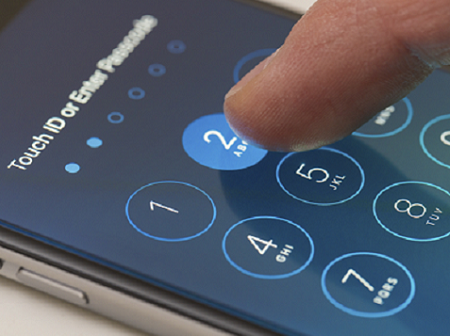Feds Appeal Apple's iPhone Encryption Win In NY Case
Apple may have hoped to "hang its hat" on a recent iPhone encryption win in a Brooklyn court, but the Justice Department has requested revisiting the judge's ruling.


iPhone Encryption: 5 Ways It's Changed Over Time
iPhone Encryption: 5 Ways It's Changed Over Time (Click image for larger view and slideshow.)
The encryption debate between Apple and the US Justice Department took a new turn Monday, as the Justice Department appealed New York Magistrate Judge James Orenstein's Feb. 29 ruling that Apple didn't need to comply with a government demand to unlock the iPhone of suspected drug dealer Jun Feng, The New York Times reported.
"In light of the debate that has recently come to surround this issue, it is worth briefly noting what this case is not about," the prosecutors said in their filing, according to an additional report from MacRumors. "Apple is not being asked to do anything it does not currently have the capability to do."
The New York case is being watched closely, as a foreshadow to a separate case dealing with the unlocking of the iPhone of Syed Rizwan Farook, the man who, with his wife, killed 14 and seriously injured 22 of his colleagues, at a San Bernardino, Calif., holiday party in December.
{Image 1}
The critical distinction between the cases is that Feng's phone ran iOS 7, while Farook's ran iOS 8 -- the latter of which automatically encrypts the phone's data, making it inaccessible to Apple and anyone else without the phone's password.
Apple has cooperated with law enforcement and unlocked many pre-iOS 8 iPhones in the past. With devices running iOS 8 and later, Apple is arguing that, in the case of Farook's device, it would need to create new software, which creates a dangerous legal precedent and potential for extreme security failures.
The March 7 appeal continued, "Apple may perform the passcode-bypass in its own lab, using its own technicians, just as it always has, without revealing to the government how it did so. Therefore, granting the application will not affect the technological security of any Apple iPhone nor hand the government a 'master key.'"
[Read Apple, FBI, Congress: 5 Burning Questions Raised.]
"I think Apple's concern is that they will end up routinely being called upon to unlock iPhones in any court case where the phone could be evidence -- and that could mean even divorce. It could go on to civil cases," Ezra Gottheil, principal analyst with Technology Business Research, told InformationWeek. "So, they're trying to draw a strong line in the sand."
Apple has invested heavily in making the iPhone a repository for everything that's most important to you -- your money, your relationships, your business -- and making it something you can trust, Gottheil added. "That's a very important idea to Apple, even a bit more so than to its competitors," he said.
The importance of the New York case, he also noted, is that "some lawyers think the Brooklyn case is easier for Apple to defend, and that Apple should have hung their hat on that."

About the Author(s)
You May Also Like






